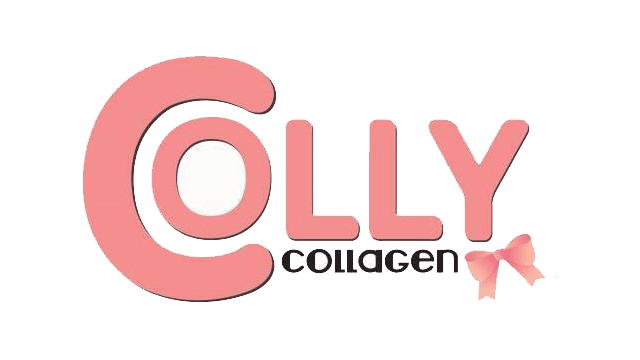What is Colly?
Colly is a popular web scraping framework written in the Go programming language. It’s designed to simplify the complex tasks associated with scraping websites for data, allowing you to navigate through websites, interact with HTML elements, and extract information efficiently. Colly is highly extensible, supporting a wide range of customizations, from the way requests are made to how data is stored. Being lightweight yet robust, Colly has found favor among developers, data scientists, and businesses looking to mine data from the web.
| Feature | Description |
|---|---|
| Language | Go |
| Extensibility | High (Custom Callbacks, Plugins) |
| Performance | Optimized for Speed and Efficiency |
| Concurrency | Native Go Routines |
| Request Customization | Headers, Cookies, User-Agent |
What is Colly Used for and How Does it Work?
Use-Cases
- Price Monitoring: Track price changes on e-commerce websites.
- Content Aggregation: Collect articles, blog posts, or other textual data.
- Social Media Mining: Analyze public sentiment by scraping social media platforms.
- Data Journalism: Extract facts, statistics, and other data for stories.
- SEO Analysis: Collect data for optimizing website search rankings.
Working Mechanism
Colly operates by sending HTTP requests to target websites and then downloading the HTML content. Once the content is retrieved, it uses a variety of selectors and callbacks to navigate through the HTML tree structure and extract the required data. Colly is capable of handling cookies, setting headers, and even performing actions like clicking links or filling forms.
- Initialize Colly Instance: Create a new Colly collector.
- Set Callback Functions: Define what to do when a visited page is loaded.
- Configure Traversing Rules: Set rules for following links, if needed.
- Start Scraping: Begin the scraping process by visiting the initial URL.
Why Do You Need a Proxy for Colly?
While Colly is an excellent tool for data extraction, web scraping activities may sometimes lead to rate-limiting or IP blocking by the target website. To navigate through these limitations, the use of proxy servers is highly recommended.
- Anonymity: A proxy server masks your IP address, making it difficult for websites to trace scraping activities back to you.
- Rate Limit Avoidance: Using multiple proxy servers allows you to distribute requests, reducing the chance of hitting rate limits.
- Geographical Restrictions: Some websites restrict content based on location. Proxies located in various regions can help overcome these limitations.
- Load Balancing: Distributing requests across multiple proxy servers can improve scraping speed and efficiency.
Advantages of Using a Proxy with Colly
- Increased Reliability: Less chance of getting blocked or rate-limited.
- Enhanced Speed: Parallel scraping through multiple proxy servers.
- Data Integrity: Accurate data extraction without encountering CAPTCHAs or other anti-scraping mechanisms.
- Legal Compliance: Using a proxy can help conform to terms of service of some websites by not overloading their servers.
What are the Cons of Using Free Proxies for Colly
- Unreliable: Free proxies are often slow and may not be available 24/7.
- Data Risk: No guarantee of security or anonymity.
- Limited Features: May not support advanced configurations.
- Rate Limiting: Other users might be using the same proxy, leading to rate limits.
What Are the Best Proxies for Colly?
For a robust and reliable web scraping operation, data center proxies like those offered by OneProxy are often the best choice.
| Type of Proxy | Reliability | Speed | Anonymity Level | Cost |
|---|---|---|---|---|
| Free Public Proxies | Low | Low | Low | Free |
| Shared Proxies | Medium | Medium | Medium | Low |
| Dedicated Proxies | High | High | High | High |
| OneProxy Data Center Proxies | Very High | Very High | Very High | Reasonable |
How to Configure a Proxy Server for Colly?
Setting up a proxy server for use with Colly involves a few straightforward steps:
- Purchase a Proxy: Choose a reliable data center proxy service, such as OneProxy.
- Collect Proxy Details: After purchasing, you’ll receive details like the proxy IP address, port, username, and password.
- Initialize Colly with Proxy: Use Colly’s built-in proxy switching features to configure the proxy settings.
- Test the Configuration: Before proceeding with large-scale scraping, conduct tests to ensure that the proxy server is working as expected.
go// Initialize a new Colly instance
c := colly.NewCollector()
// Set up proxy
httpProxyURL, err := url.Parse("http://your_proxy_ip:your_proxy_port")
if err != nil {
log.Fatal(err)
}
c.SetProxy(httpProxyURL.String())
// Rest of your Colly code
By integrating Colly with a trusted proxy server, you can ensure the highest level of performance, reliability, and data integrity in all your web scraping endeavors.













